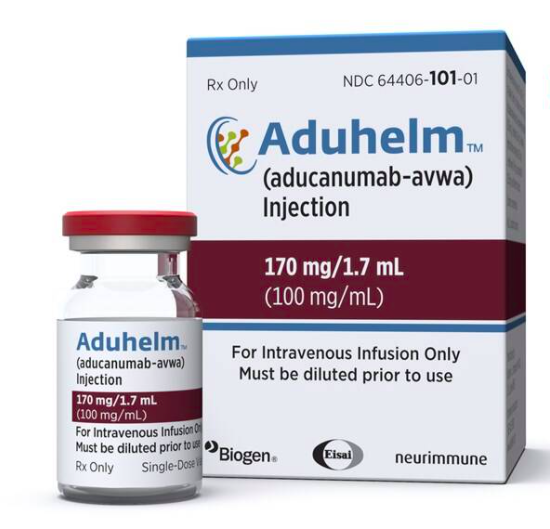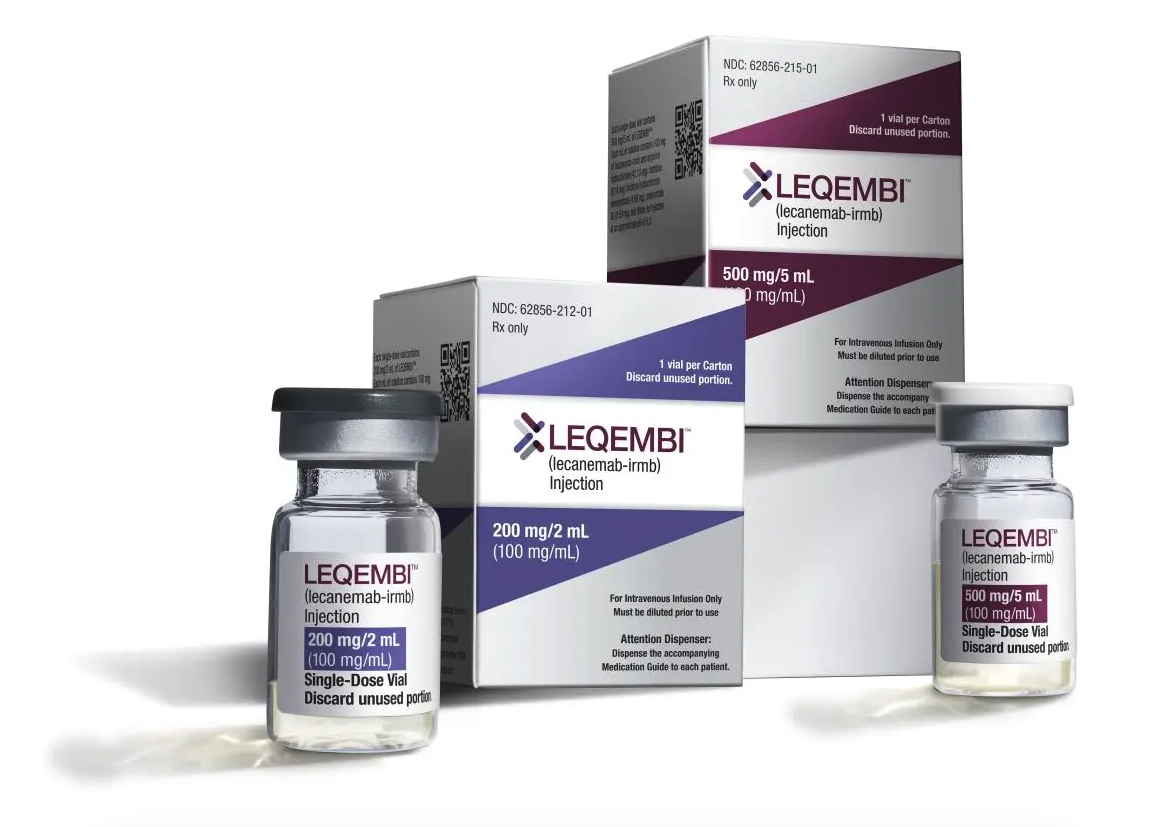Aduhelm (aducanumab-avwa) vs Leqembi (lecanemab-irmb)
Aduhelm (aducanumab-avwa) vs Leqembi (lecanemab-irmb)
Aduhelm (aducanumab-avwa) and Leqembi (lecanemab-irmb) are both monoclonal antibodies designed to target amyloid beta plaques in the brain, which are associated with Alzheimer's disease. Aduhelm was the first of its kind to be approved by the FDA, but its approval was controversial due to questions about its efficacy and the adequacy of evidence from clinical trials. Leqembi, approved later, has shown in clinical trials to slow the progression of Alzheimer's disease, and while it also targets amyloid beta, it might be associated with a different side effect profile and efficacy rate. When deciding between the two, patients should consider the clinical evidence supporting each medication, their individual risk-benefit profile, and discuss with their healthcare provider to determine the most appropriate treatment option.
Difference between Aduhelm and Leqembi
| Metric | Aduhelm (aducanumab-avwa) | Leqembi (lecanemab-irmb) |
|---|---|---|
| Generic name | aducanumab | lecanemab |
| Indications | Alzheimer's disease (early stages) | Alzheimer's disease (early stages) |
| Mechanism of action | Monoclonal antibody targeting amyloid beta plaques | Monoclonal antibody targeting amyloid beta plaques |
| Brand names | Aduhelm | Leqembi |
| Administrative route | Intravenous infusion | Intravenous infusion |
| Side effects | ARIA, headache, fall, diarrhea, confusion | ARIA, infusion-related reactions, headache, falls |
| Contraindications | Hypersensitivity to aducanumab or its excipients | Hypersensitivity to lecanemab or its excipients |
| Drug class | Monoclonal antibody | Monoclonal antibody |
| Manufacturer | Biogen | Eisai Co., Ltd. |
Efficacy
Aduhelm (aducanumab-avwa) Efficacy in Alzheimer's Disease
Aduhelm (aducanumab-avwa) is a medication approved by the U.S. Food and Drug Administration (FDA) for the treatment of Alzheimer's disease. It is the first therapy to target the fundamental pathophysiology of the disease by reducing amyloid beta plaques in the brain, which are believed to play a crucial role in the development of Alzheimer's. Clinical trials of Aduhelm have shown a reduction in these plaques, which is expected to slow the progression of the disease. However, the clinical benefit of Aduhelm in terms of improving or stabilizing cognitive and functional abilities has been a subject of debate within the medical community, with some clinical trial results showing mixed outcomes.
The approval of Aduhelm was based on its ability to reduce amyloid beta plaques, as measured by positron emission tomography (PET) imaging. The assumption is that this reduction would translate to a clinical benefit. However, the evidence of its impact on cognitive decline is less clear. The FDA granted Aduhelm accelerated approval, which can be used for a drug for a serious or life-threatening illness that provides a meaningful therapeutic advantage over existing treatments. This type of approval is based on a surrogate endpoint that is thought to predict clinical benefit, with further trials required to confirm the anticipated benefit.
Leqembi (lecanemab-irmb) Efficacy in Alzheimer's Disease
Leqembi (lecanemab-irmb), like Aduhelm, is an antibody treatment that targets amyloid beta plaques in the brain. It has been shown in clinical trials to reduce amyloid plaques, and preliminary data suggests that it may slow cognitive decline in patients with early Alzheimer's disease. The results from Phase 2 trials indicated that Leqembi could slow the progression of Alzheimer's by about 27% compared to a placebo over an 18-month period. These outcomes are promising and suggest that Leqembi may offer a therapeutic benefit for patients with Alzheimer's disease.
It is important to note that while the reduction of amyloid beta plaques is a significant scientific achievement, the correlation between plaque reduction and cognitive benefits is still under investigation. Both Aduhelm and Leqembi are part of a class of drugs known as monoclonal antibodies, which are designed to target specific proteins or cells. While these drugs have shown promise in altering the course of Alzheimer's disease, further research is necessary to fully understand their long-term efficacy and safety profiles, as well as their impact on the quality of life for patients with Alzheimer's disease.
Regulatory Agency Approvals
Aduhelm
-
Food and Drug Administration (FDA), USA

Leqembi
-
Food and Drug Administration (FDA), USA

Access Aduhelm or Leqembi today
If Aduhelm or Leqembi are not approved or available in your country (e.g. due to supply issues), you can access them via Everyone.org.
How it works

Make an enquiry
Choose the medicine you want to buy, answer a couple of questions, and upload your prescription to speed things up. We’ll get back to you within 24 hours.


Make an enquiry
Choose the medicine you want to buy, answer a couple of questions, and upload your prescription to speed things up. We’ll get back to you within 24 hours.


Breeze through the paperwork
We'll guide you through the required documents for importing unapproved medicine, ensuring you have all the necessary information.


Get a personalized quote
We’ll prepare a quote for you, including medicine costs and any shipping, administrative, or import fees that may apply.


Receive your medicine
Accept the quote and we’ll handle the rest - sourcing and safely delivering your medicine.

Some text on this page has been automatically generated. Speak to your physician before you start a new treatment or medication.
Let's talk
If you have any questions, call us or send us a message through WhatsApp or email:
Contact us




